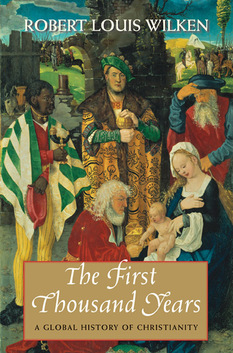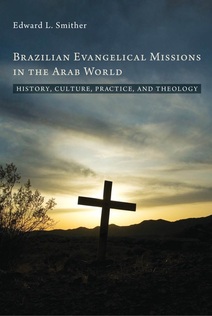posts
 Dear Brennan, I learned today that, as the Romans put it, you lived. You fought the good fight, finished the race, and kept the faith. And now you have entered into the eternal presence of the Lord and have probably heard "well done" by now. I first became acquainted with your writing through a musician, Rich Mullins (who you've probably reconnected with by now) and his music that was affected by your teaching and writing. I'm pretty sure you had something to do with the title of his "Liturgy, Legacy, and a Ragamuffin Band" album. Speaking of ragamuffins, your book The Ragamuffin Gospel taught me about the truth of God's amazing grace maybe more than anything I've ever read or heard. It was one of those few books that moved me to tears every few pages it seemed (and I don't cry hardly ever). It's one of the few books that I would buy in bulk to give to friends. My favorite quote from the book is actually not your own (from Robert Capon, Between Noon and Three, 114-15) but one that captures the spirit of the book. You, a Franciscan Catholic, describe in living color how the Protestant Reformers must have felt when they rediscovered grace and the gospel: The Reformation was a time when men went blind, staggering drunk because they had discovered, in the dusty basement of late medievalism, a whole cellar full of fifteen hundred year old, two hundred proof grace—of bottle after bottle of pure distillate of Scripture, one sip of which would convince anyone that God saves us single handedly. To this you add: In essence, the Reformers recovered the biblical gospel: That God accepts us sinners not because of any work or supposed merit of our own, but because of His own mercy, on the ground of Christ’s finished work in which by grace we put our trust. Thus, today we remember that Christianity at the core is “not primarily a moral code but a grace filled journey; it is not essentially a philosophy of love but a love affair; it is not keeping rules with clenched fists but receiving a gift with open hands.” Ragamuffin Gospel was also a story of your journey. Your obituary in short form and your last work All is Grace (your memoir) show us that you lived a life in need of grace, you reveled in it, and you passed it on to other beggars. Thank you for your brokenness and transparency. When my son was born in 2003, we named him Brennan. Partly because we liked the meaning of the name in its original Gaelic ("Prince" or "sword") but mostly because we wanted him to emulate you. We continue to pray that he will. In his latest work, The First Thousand Years: A Global History of Christianity, Robert Louis Wilken has invited the reader to a delightful journey that spans the church's first millenium. Now professor emeritus of History of Christianity at the University of Virginia, Wilken pays forward the fruits of his career in early Christian studies and proves to be a trusted guide through his profound handle on the narrative of the period. Similar to his manner in The Spirit of Early Christian Thought, he frames the work around themes and people and, in the words of one reviewer, we "meet" many of they key personalities in the story of Christianity while getting a sense of the social, theological, and political issues.
The following were some highlights:
My main critique is that, despite that fact that this work is the fruit of a lifetime of study, the reader does not benefit from that research by way of footnotes or endnotes. Though Wilken has indicated that this is deliberate and that the work should not be considered a monograph, some basic documentation would have been a real plus. Despite this, the book does include a helpful set of maps, a bibliography of key primary and secondary sources, and a chronology that will aid rtainly help the reader grasp the overall narrative. In short, in this work, Prof. Wilken has provided a great resource to students of history and to the church as a whole. The following is my review of David Dunaetz' The Early Religious History of France: An Introduction for Church Planters and Missionaries that was published in the April 2013 issue of Evangelical Missions Quarterly.
Should we read history missiologically, and can that historical reflection help mission practice today? David Dunaetz attempts to answer yes to those questions in writing this new book. Dunaetz’s aim is to offer an overview of the first one thousand years of Christianity in France, especially for those with a superficial knowledge of French church history. His primary audience is the missionary community from North America and his goals are to equip them with a greater understanding of French church history to aid them in more effective church planting in France (pp. 1-4). Following a brief introduction, Dunaetz’s work is organized in six chapters. In the first five, particular periods are broken down, including the pre-Christian era to the second century (chap. 1); the second and third-century Church (chap. 2); the fourth-century Church and official Roman recognition of Christianity (chap. 3); the Church in the fifth to seventh centuries (chap. 4); and the Carolingian period from the eighth to tenth centuries (chap. 5). In chapter 6, Dunaetz provides a brief overview of French church history from 1000 AD to the present day. Except for the final chapter, his practice is to narrate key historical elements from that period and then discuss their missiological applications for today. This book has a couple of weaknesses. First, with only twenty works cited, The Early Religious History of France seems to be lacking in source materials for a robust historical study. Related, chapters 1 and 2 could have benefited from a stronger historical foundation before any missiological reflection was attempted. Finally, although chapters 3-5 have a stronger historical foundation, I consistently struggled to see the author’s warrant to jump from historical data to missiological application without the best historical foundation. While I applaud Dunaetz’s missiological reading of history that seeks to inform how we approach mission today, this seems to be the biggest weakness in the book. In terms of positive highlights, Dunaetz does a helpful job of introducing the reader to key church leaders and theologians (e.g., Martin of Tours, Hilary of Poitiers, and Vincent of Lerins), as well as political leaders (e.g., Clovis, Pepin, Charles Martel, and Charlamagne). Culturally speaking, Dunaetz aids the reader in understanding the differences between the Gallican peoples, the Franks, and the Goths—all within the mosaic of the Roman Empire. Finally, in terms of style, the work is well written and accessible to benefit a broad audience of readers. Although not an in-depth historical work, Dunaetz’s book should serve Christian workers in France (from the whole Global Church) to grasp some key points in French church history toward better understanding the French and planting churches among them. I am grateful for Dave Broucek's kind review of Brazilian Evangelical Missions in the Arab World in the April 2013 issue of Evangelical Missions Quarterly:
Ed Smither’s work represents a mature evangelical description of Latin American missionary efforts. Earlier narratives of missions from south of the border exulted in Luis Bush’s bold declaration, “From a mission field, Latin America has become a mission force.” Smither has no less admiration for the Latin missionary movement, but his description is more “thick” (to use a term from qualitative research) and more nuanced. (Visit EMQ online to read the read the rest of the review). Dave serves with South America Mission, a key organization in Latin America for nearly a century. It was my privilege last Fall to sit with some of the SAM field leaders and share what I had learned through writing the book. |
Archives
November 2023
|



 RSS Feed
RSS Feed
